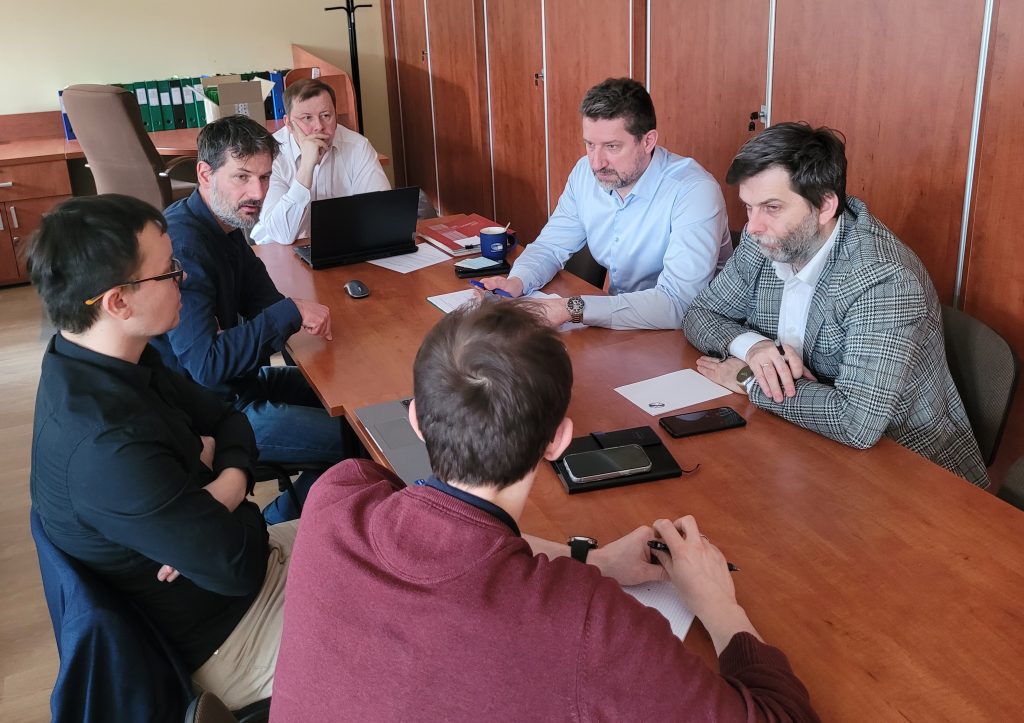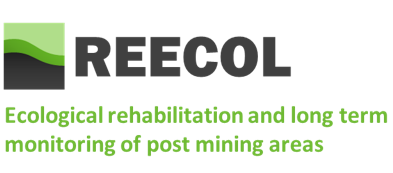The 2nd day of the project progress meeting in Velenje
On the 2nd day of the REECOL project progress meeting, the project partners visited the lands of Premogovnik Velenje (PV) coal mine that undergo rehabilitation and the Coal Mining Museum of Slovenia in Velenje – both the surface and underground part. At both places they acquired a lot of interesting information, among others about:
– the process of phasing out the coal excavation at the PV mine, and about their past, current and future land reahabilitation activities
– the technology of coal excavation in the PV mine
– the beginnings and history of the PV coal mine, persons that played an important role in it, and coal miners’ everyday life in the past.
Related links – visit in the museum: i) https://tinyurl.com/5n6mm66r; ii) http://muzej.rlv.si/en/
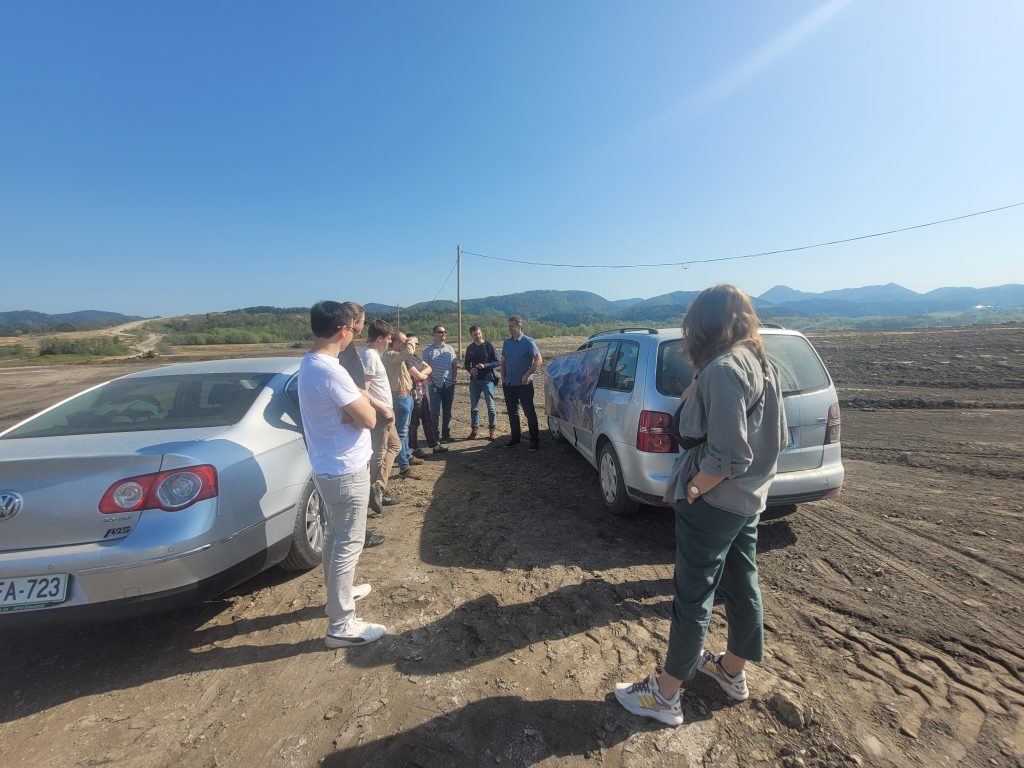
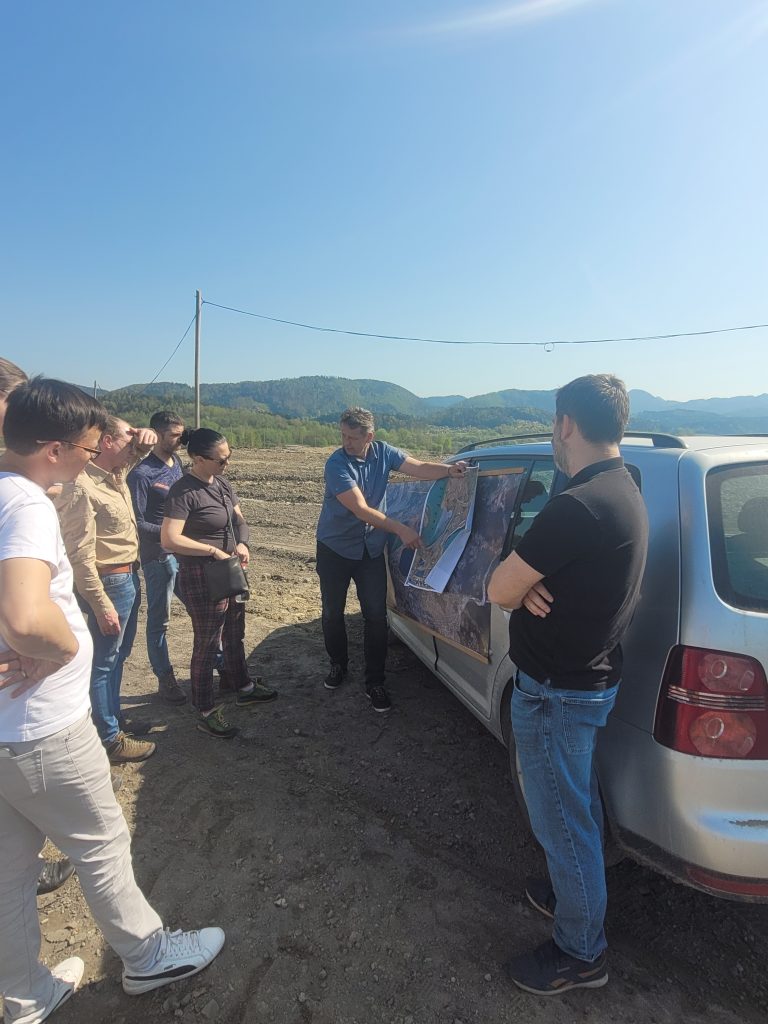
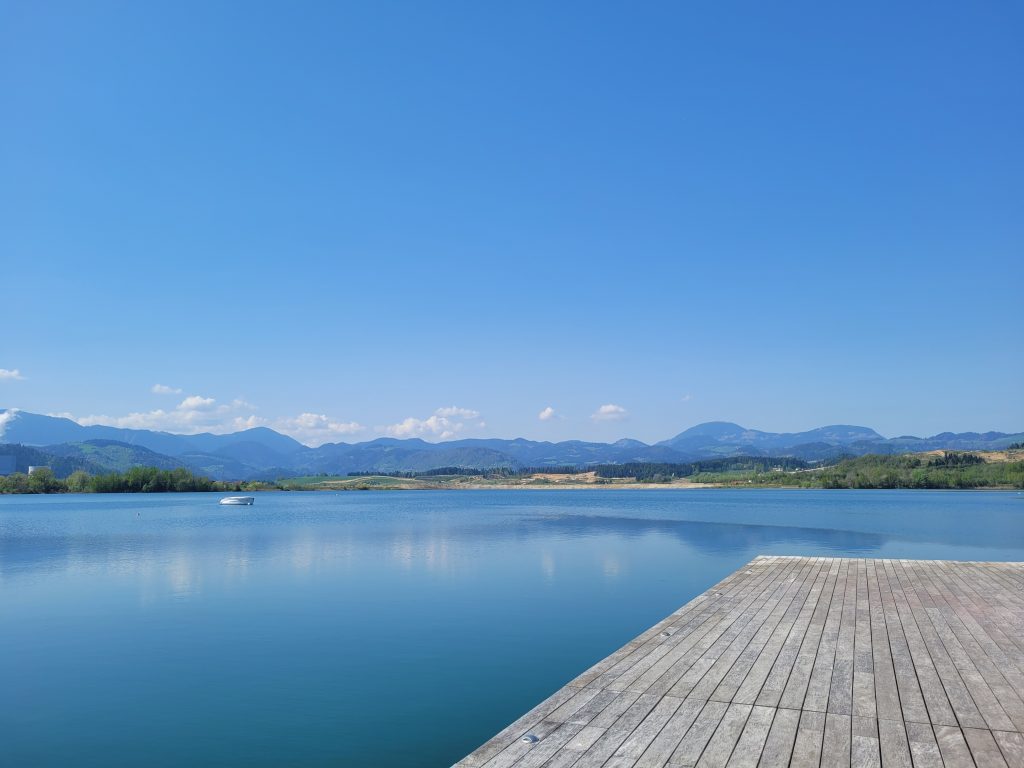
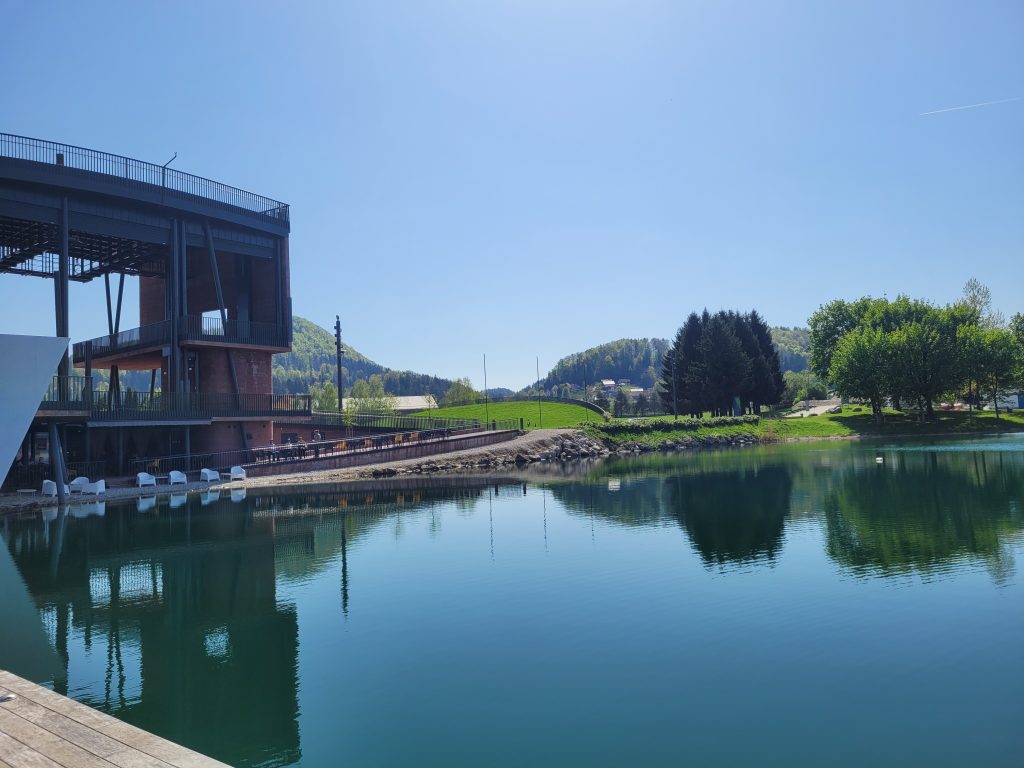
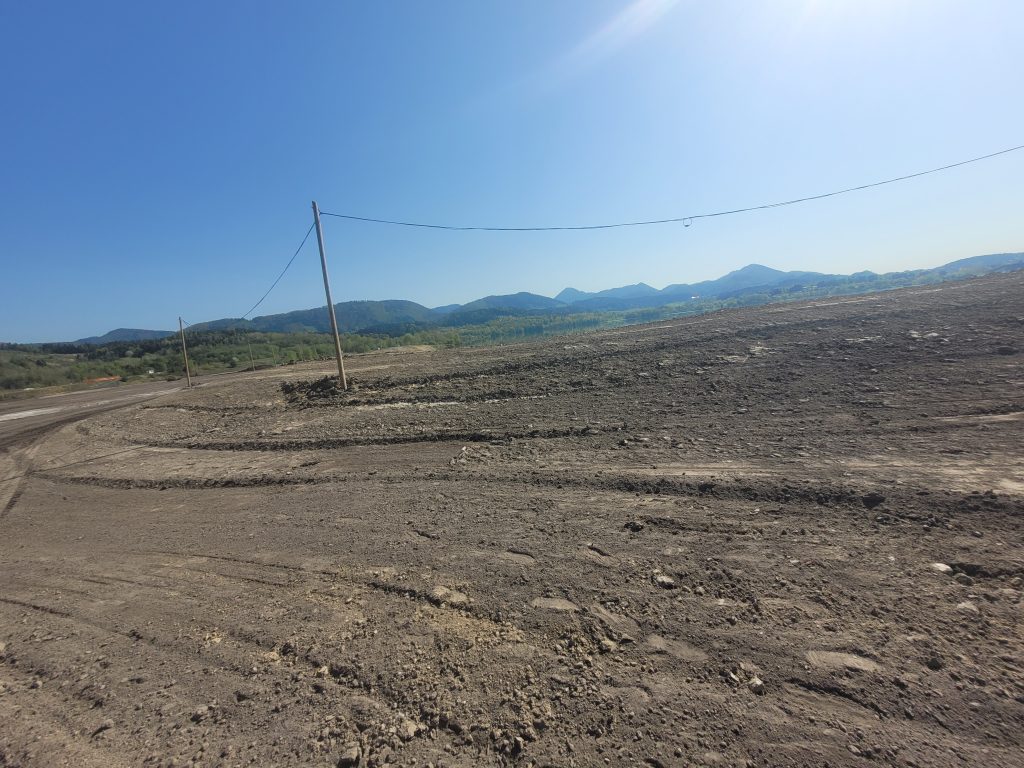
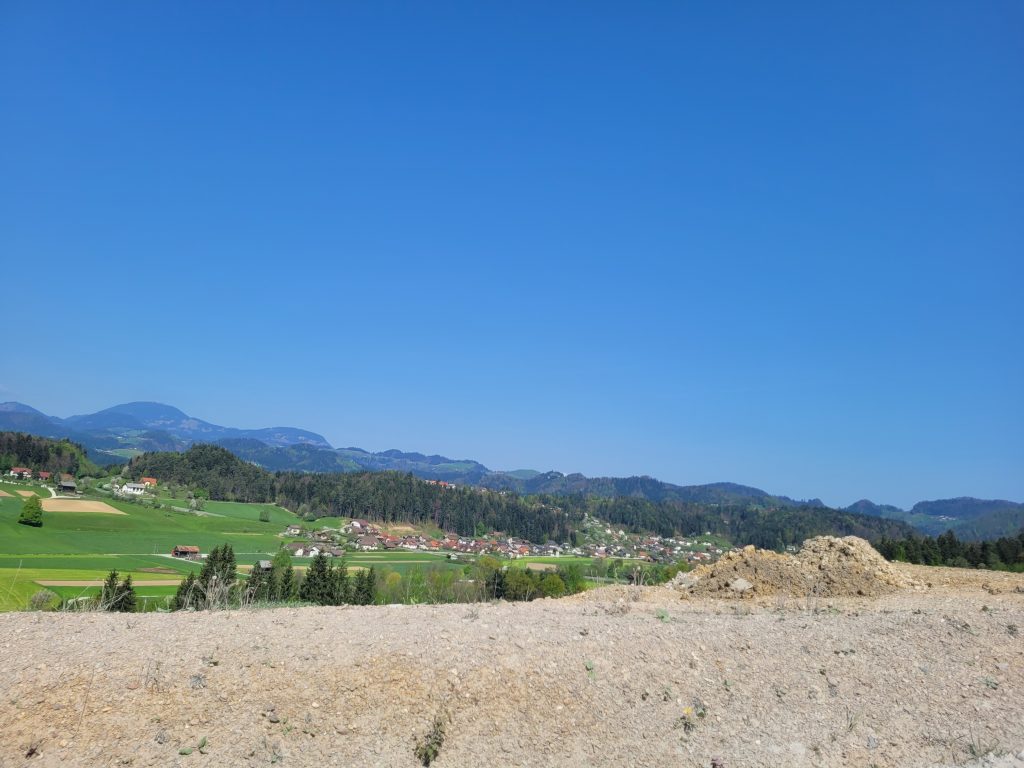
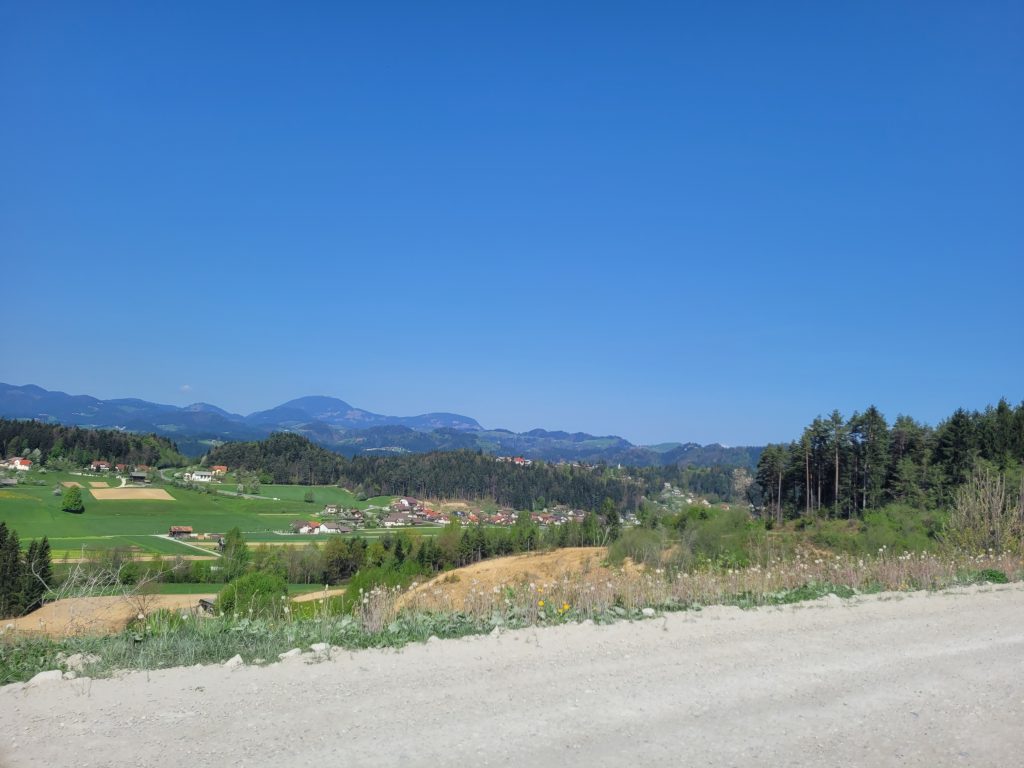
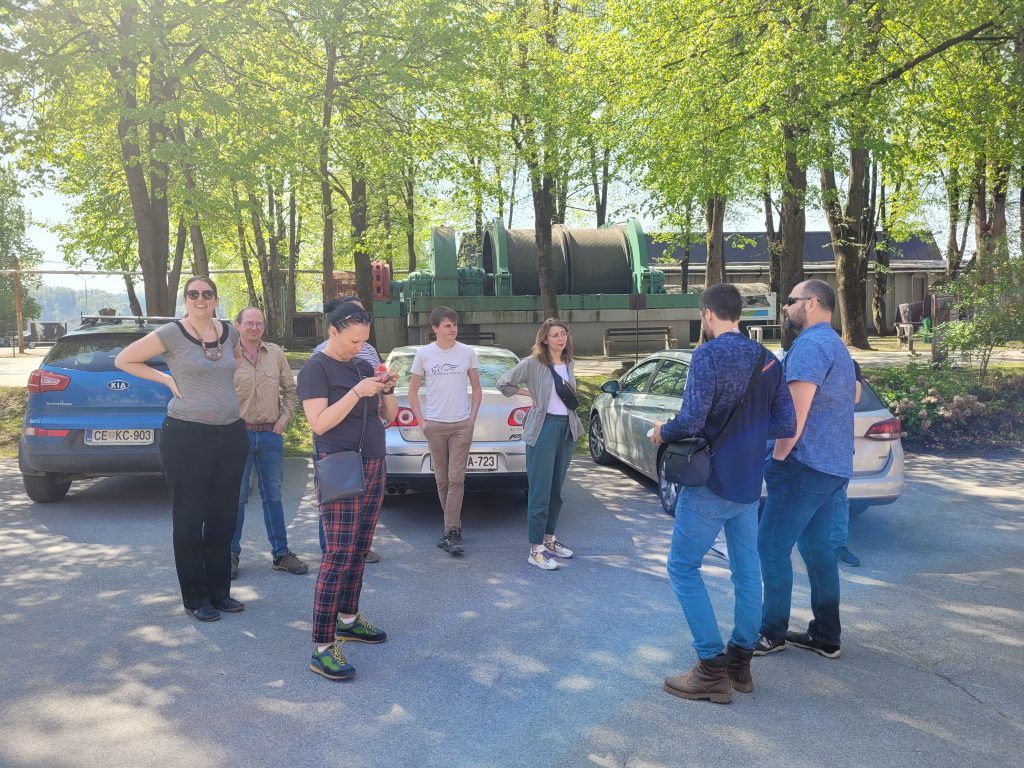
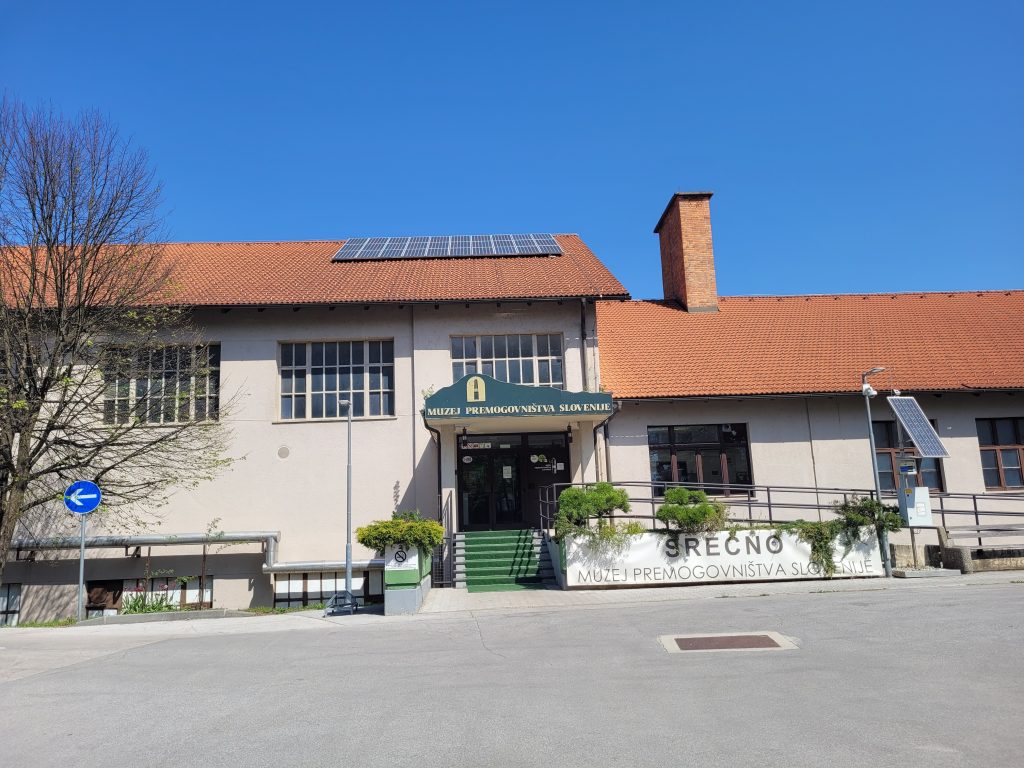
Drone flights over mining heaps – in Bytom and Gliwice
KOMAG continues their work with drone flights to be ready for monitoring of rehabilitation of postmining lands with use of the technologies and solutions developed in the REECOL project. This time the flights were carried out over two locations – ‘Mokry’ heap in Bytom and ‘Sośnica’ heap in Gliwice. The drone with a multispectral camera bought in the project was used. Data necessary for calculation of the Normalized Difference Vegetation Index (NDVI) were collected.
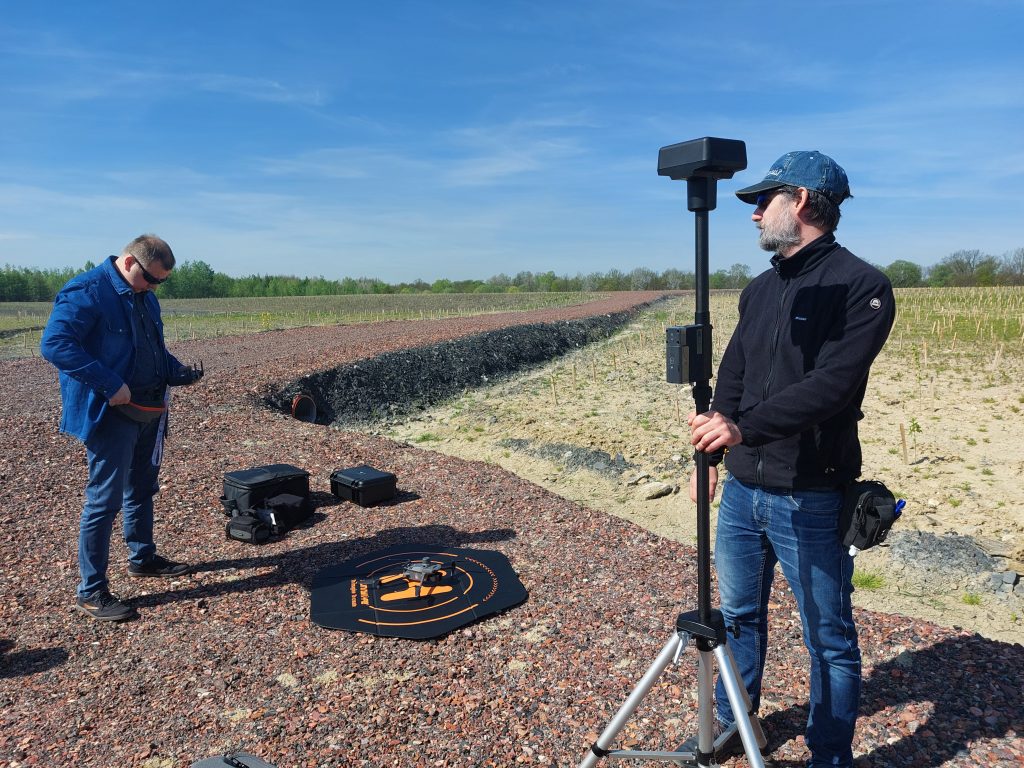
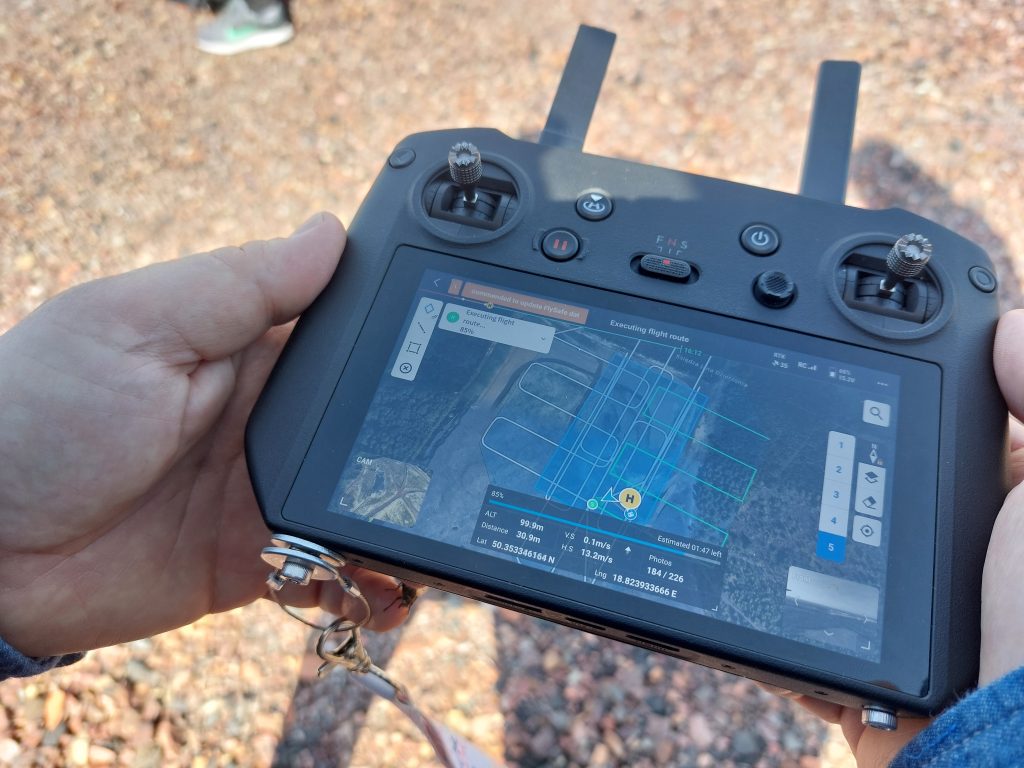
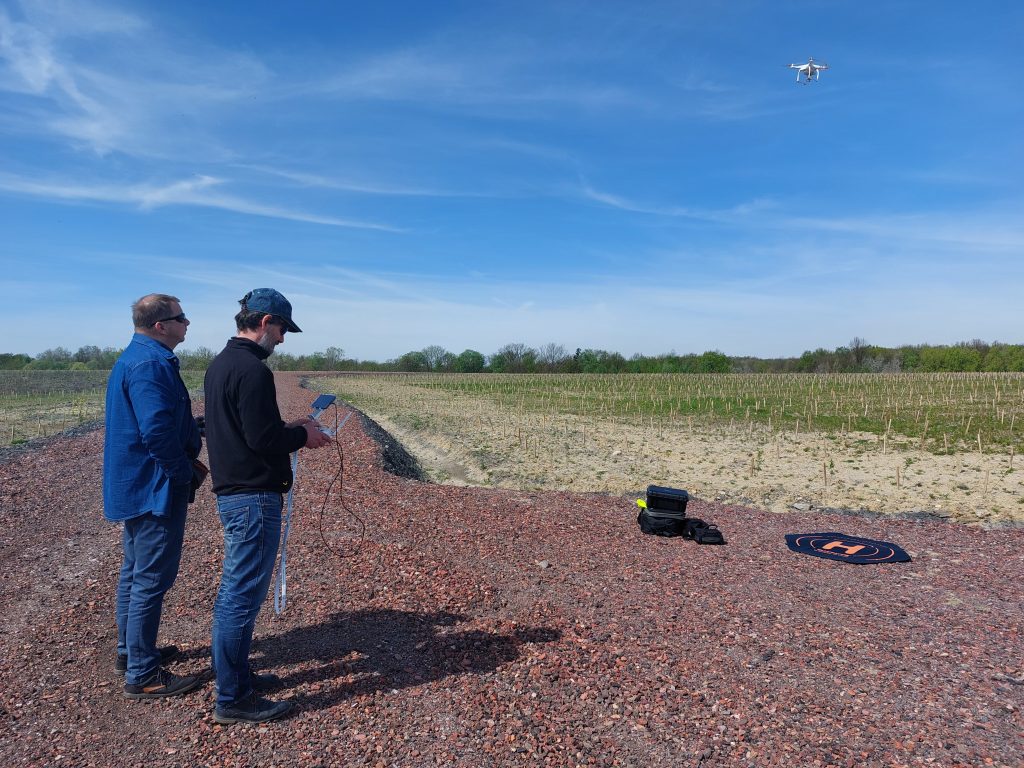
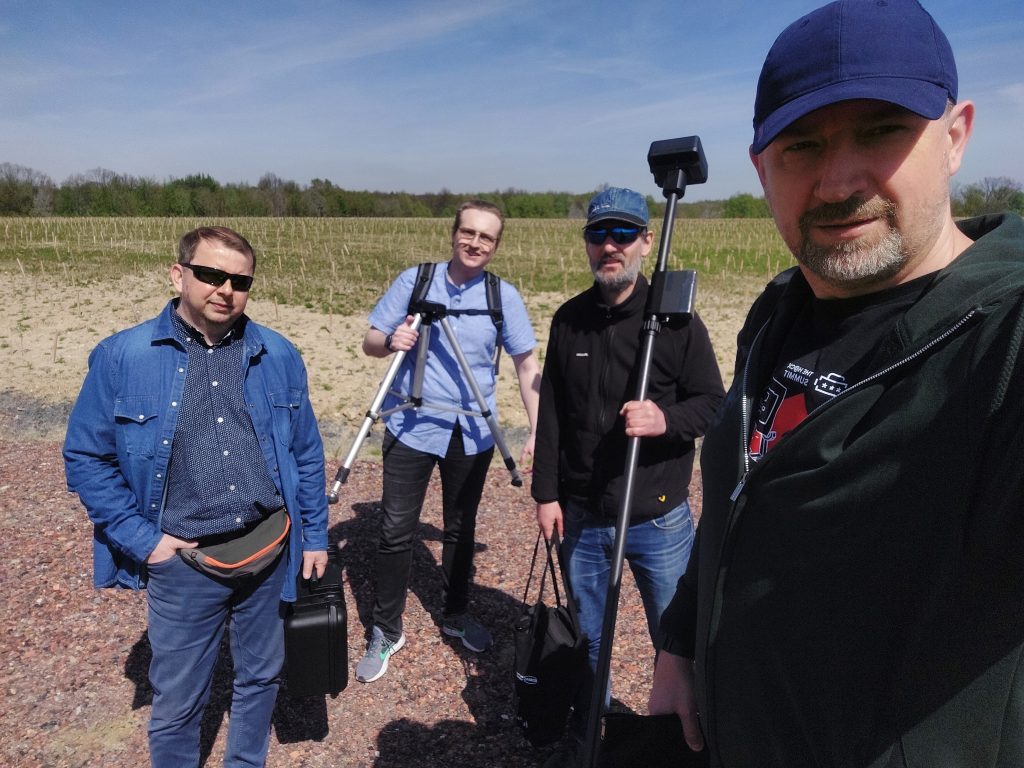
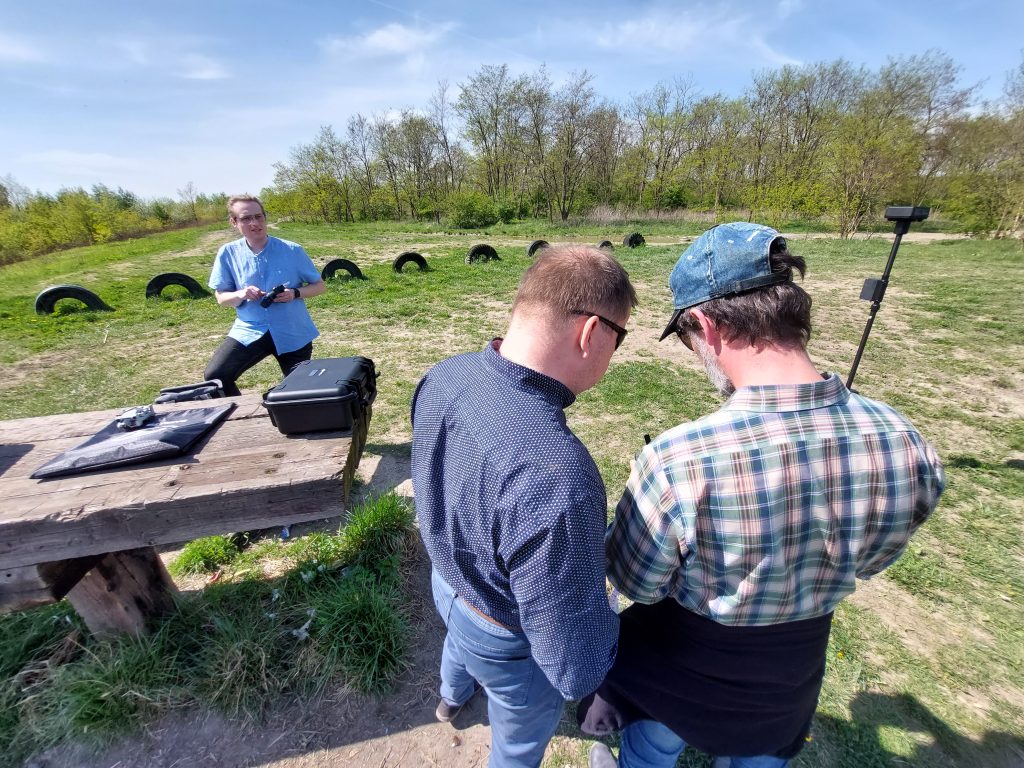
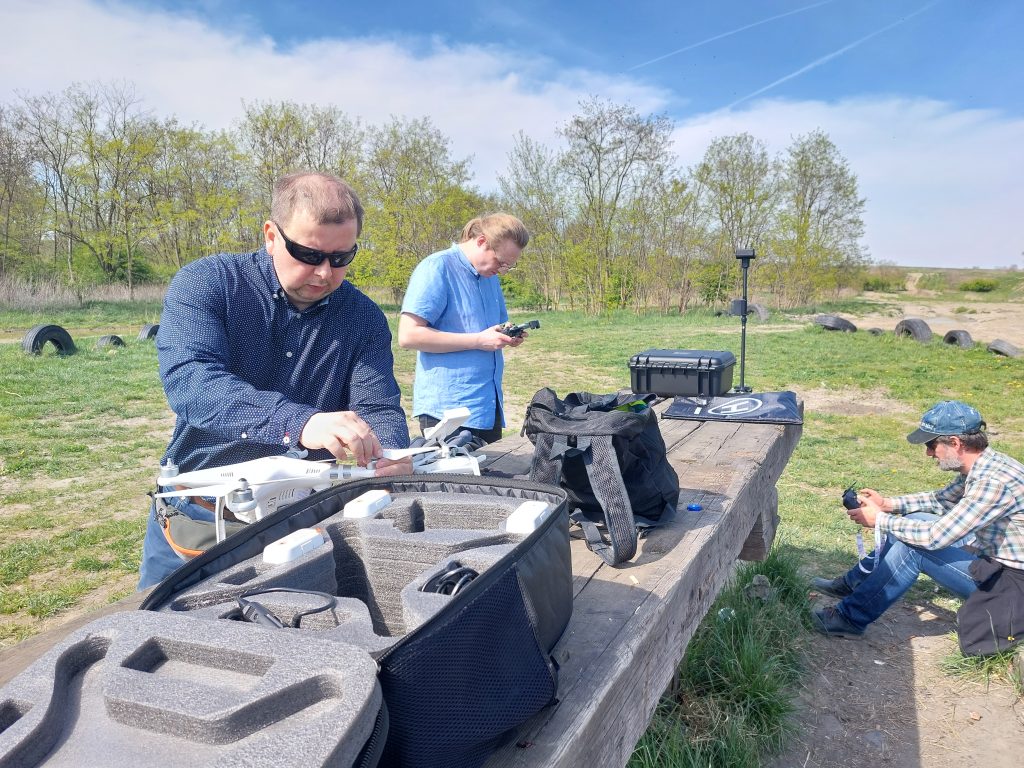
The 1st day of our project progress meeting in Velenje
On 11.04.2024 the project partners met in person in Velenje (Slovenia) and online during a meeting hosted by Premogovnik Velenje (https://www.rlv.si/) to discuss the completed, current and future task. Each partner gave a presentation about their work.
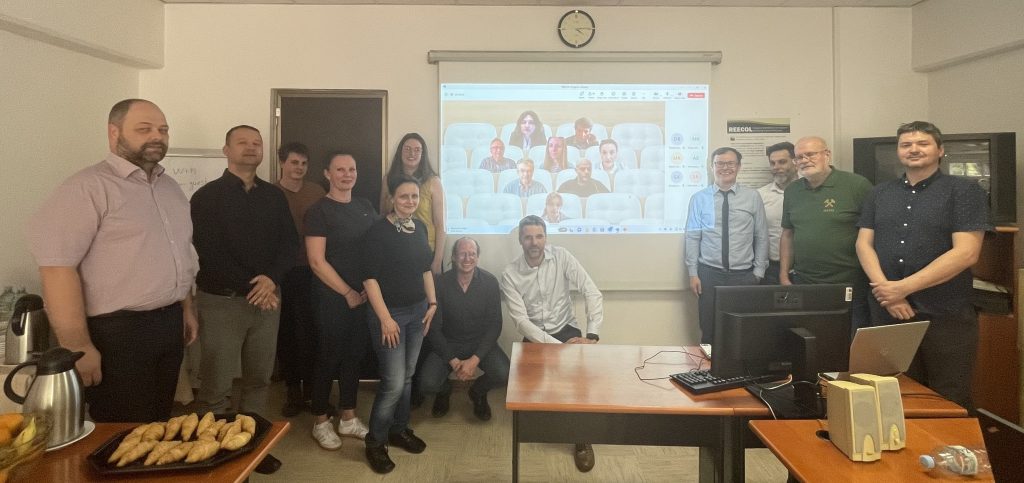
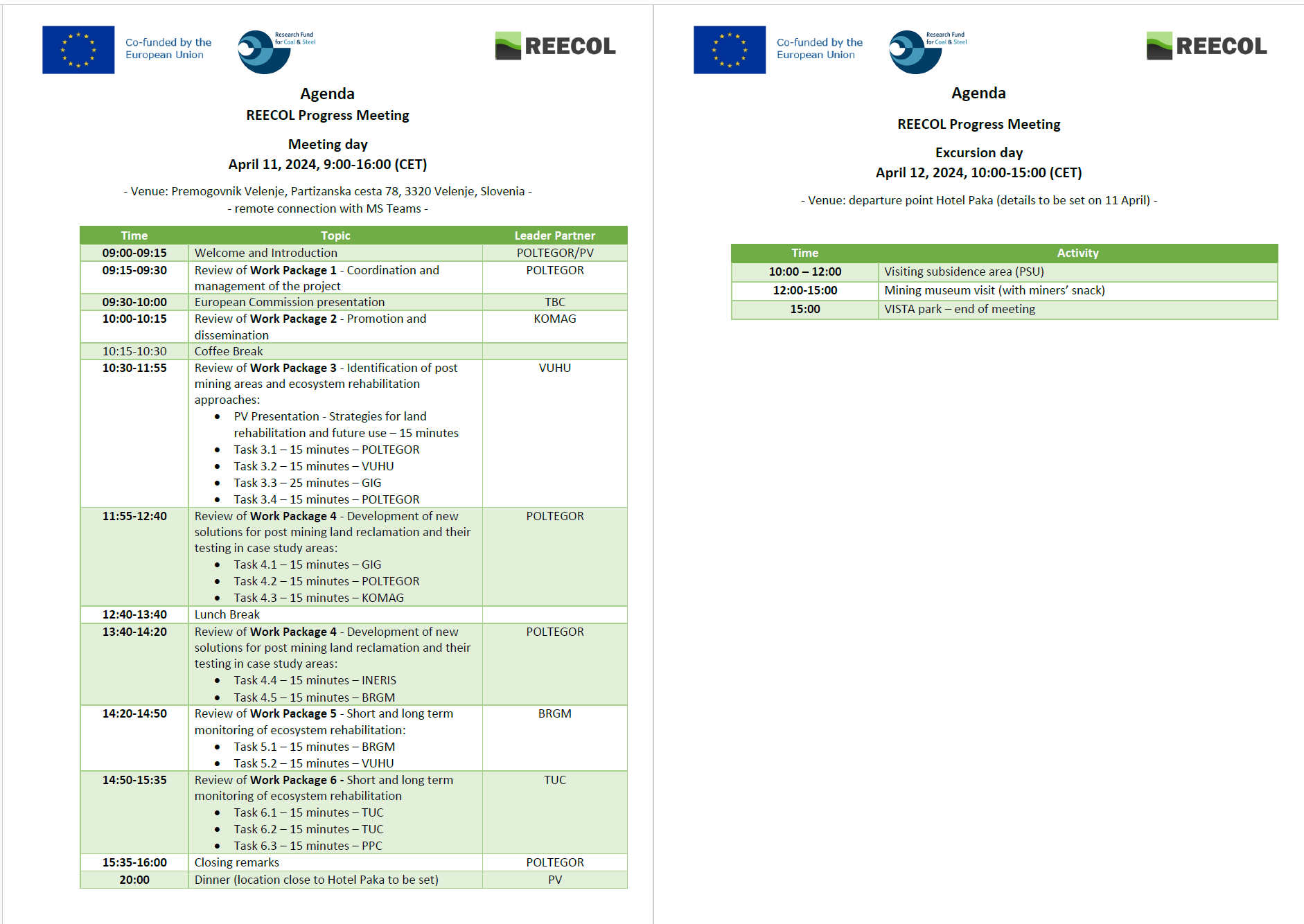
Selection of areas for reasearch on the compost developed by Poltegor
Poltegor-Instytut recently visited the Konin Brown Coal Mine, focusing on the Pątnów II B open-pit mine, where mining activities ceased in 2023. The purpose of this visit was to select areas for research on the compost mixture developed by the Institute.
Soil amples were taken as the first step in the efforts to address soil degradation challenges in post-mining areas. This degradation often impedes vegetation growth, which is a critical issue our compost aims to resolve. Our research is directed not only at revitalizing the soil but also at enhancing its properties to support the sustainable rehabilitation of these areas.
The Pątnów II B mine is currently undergoing reclamation works in several directions: the creation of a water reservoir in the former Jóźwin IIB open-pit mine area, covering 438 hectares with a capacity of 220 million cubic meters, and efforts focused on agriculture and forestry. These initiatives mark a significant transition towards the sustainable use of post-mining landscapes.
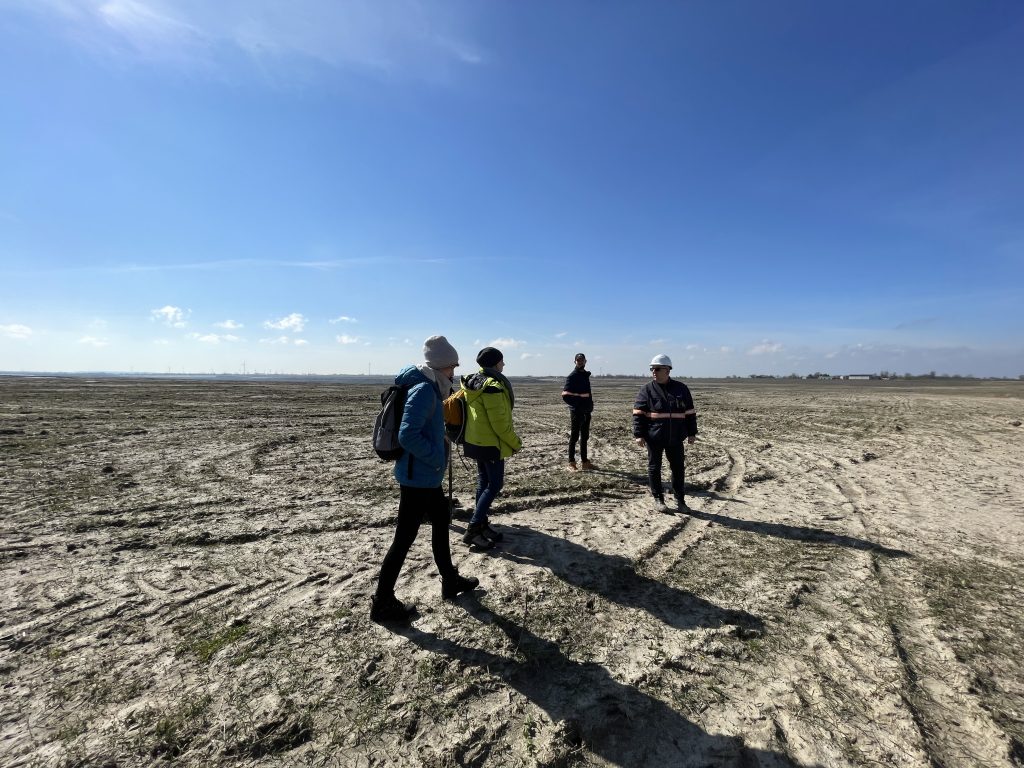
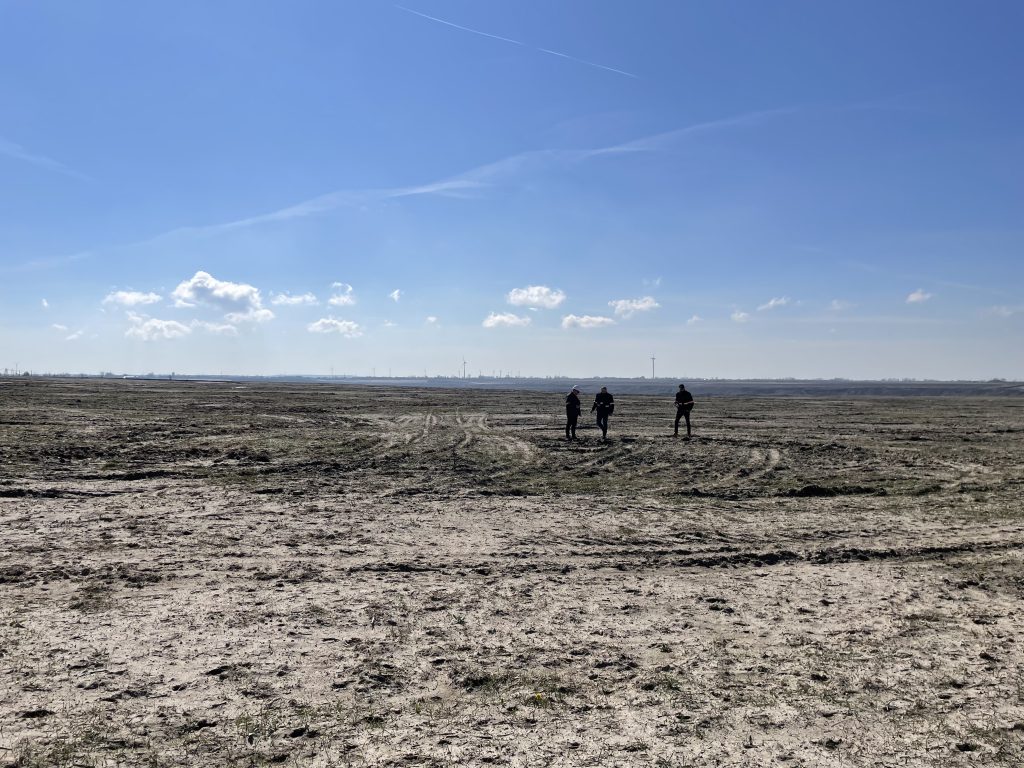
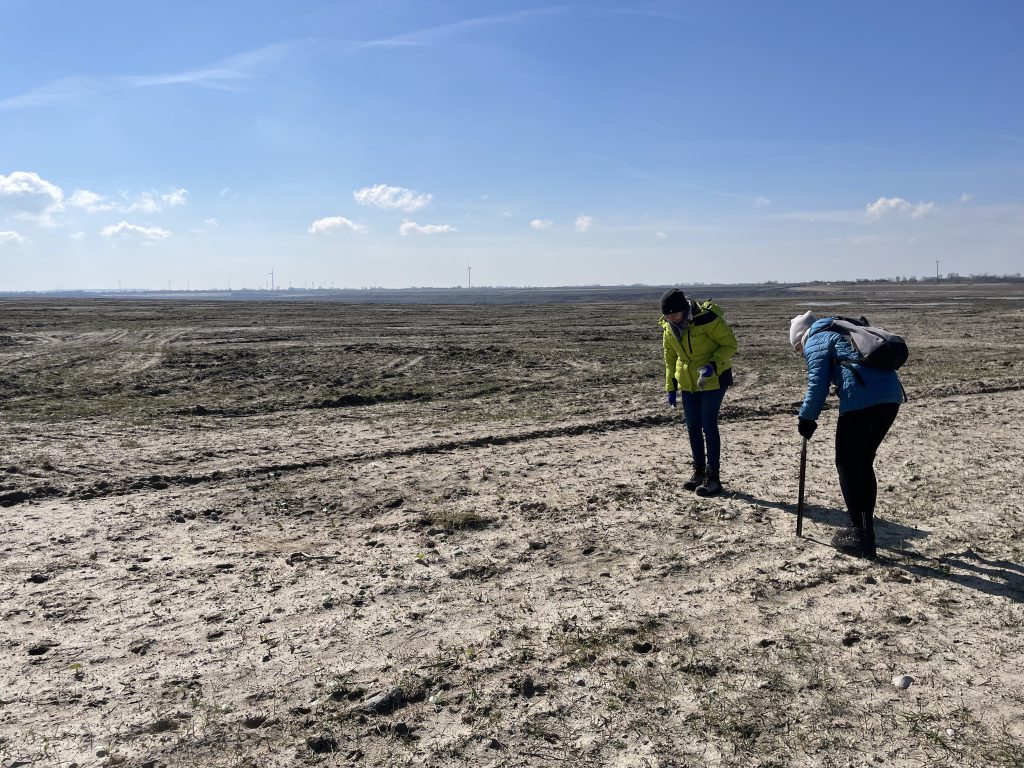
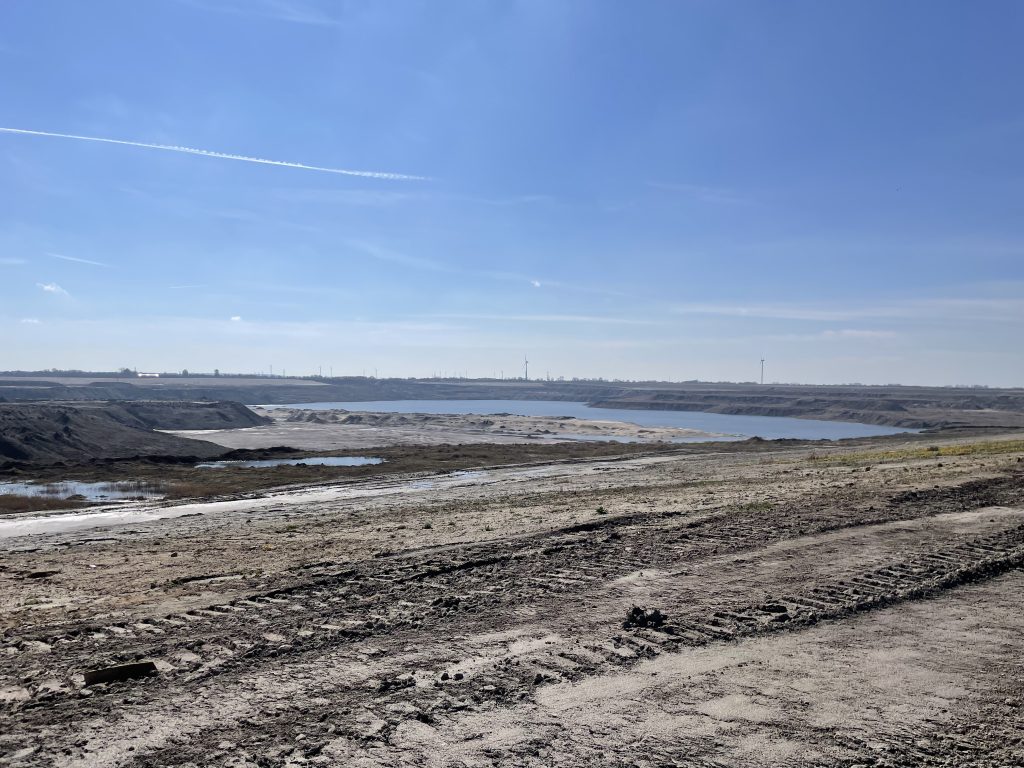
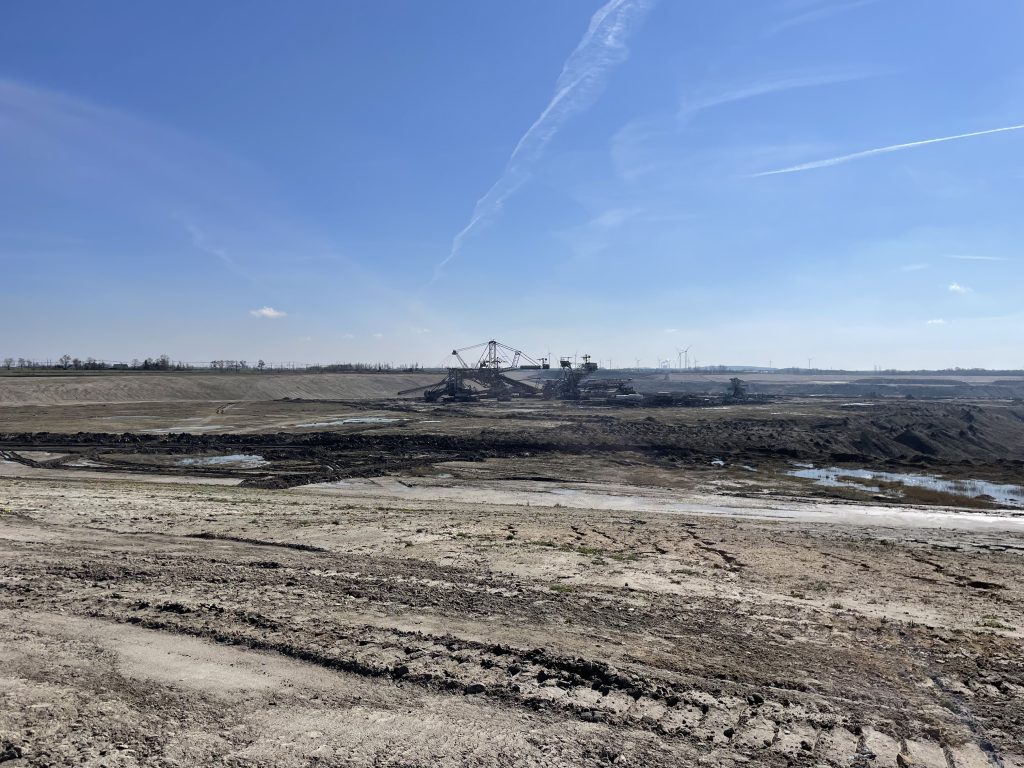
Poltegor continues work on compost for soil reclamation – findings from laboratory studies
Poltegor-Instytut currently works on development of an innovative laboratory compost aimed at improving the rehabilitation processes for post-mining landscapes. This effort is an integral part of the REECOL project’s commitment to addressing soildegradation in post-mining areas.
The Institute’s recent work has involved detailed studies on the interactions between selected microorganisms for a composting vaccine. These studies are crucial to ensuring the composting process produces a clean, humus-rich, and biologically stable product that can enhance properties of soil by providing plants with accessible nutrients.
A significant aspect of this research was to identify and eliminate any potential antagonistic interactions among the strains in the multi-organism vaccine. Through biotic interaction tests, the Poltegor team found that most strains have neutral relationships, allowing to finalize the vaccine’s composition.
Why this matters? The goal of this compost is not only to rejuvenate the soil but also to improve its quality significantly, which is essential for the sustainable rehabilitation of mining-affected areas and the future development of local ecosystems.
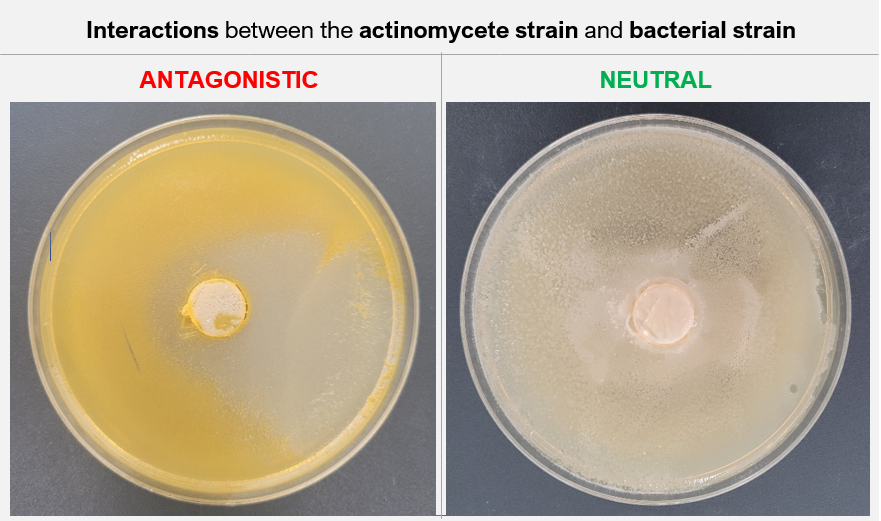
Partners meet online to work on WP5
On 26.03.2024 an online meeting of project partners involved in WP5 ‘Short and long term monitoring of ecosystem rehabilitation’ took place. It was organized by BRGM, and representatives of the following partners participated: Poltegor-Instytut, Valorhiz, INERIS, GIG, VUHU, TUC, PPC S.A., Premogovnik Velenje. The following issues were discussed:
– methodology and indicators to be used in the project for monitoring of landrehabilitation at post-mining areas;
– sampling at testing sites; these sites are selected in post-mining areas.
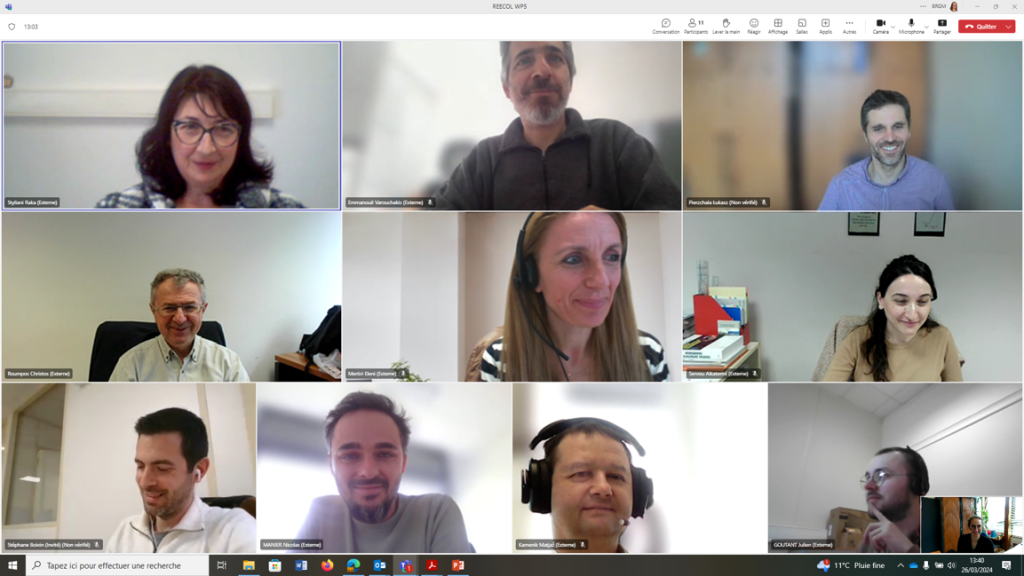
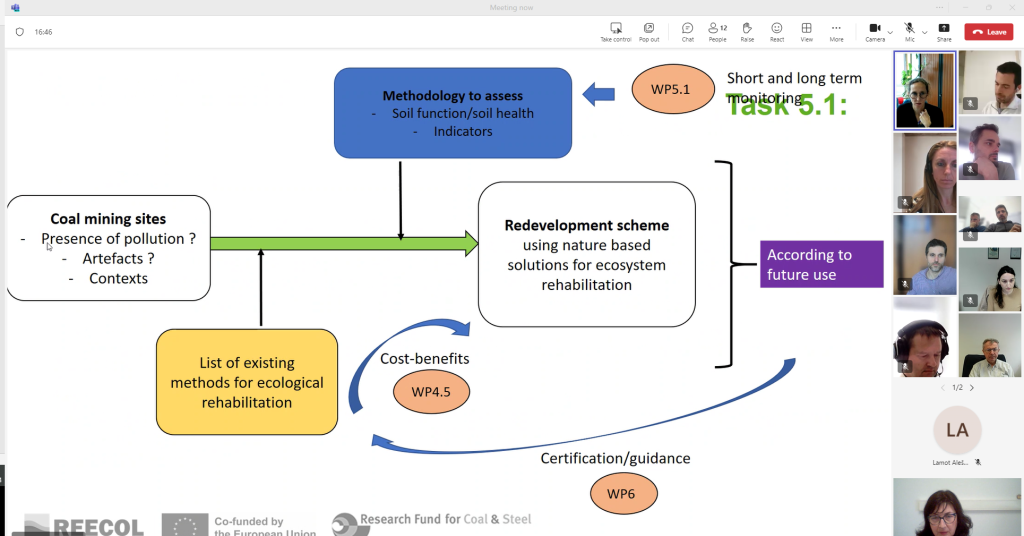
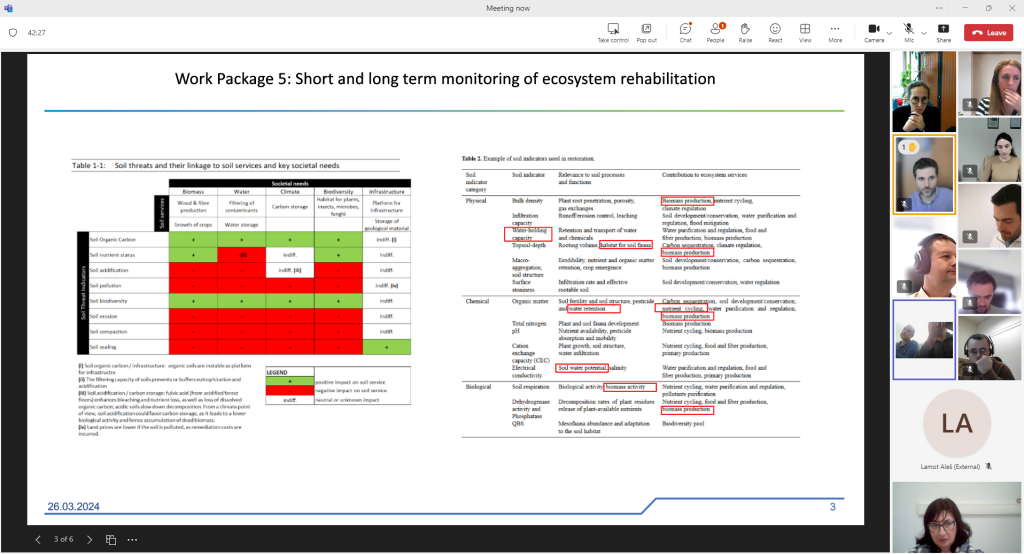
REECOL ideas shared with Jan Evangelista Purkyne University in the city of Ústí nad Labem
A public lecture by Dr. M. Rehor from the Brown Coal Research Institute took place on 23.03.2024 at the campus of the Jan Evangelista Purkyne University in the city of Ústí nad Labem. Students, stakeholders and other interested persons were briefly introduced to the objectives of the European REECOL project and in more detail to the research results of task 3.1, which deals with the mapping and characterization of degraded soils. The lecture was focused on the degraded soils of the Most Basin.
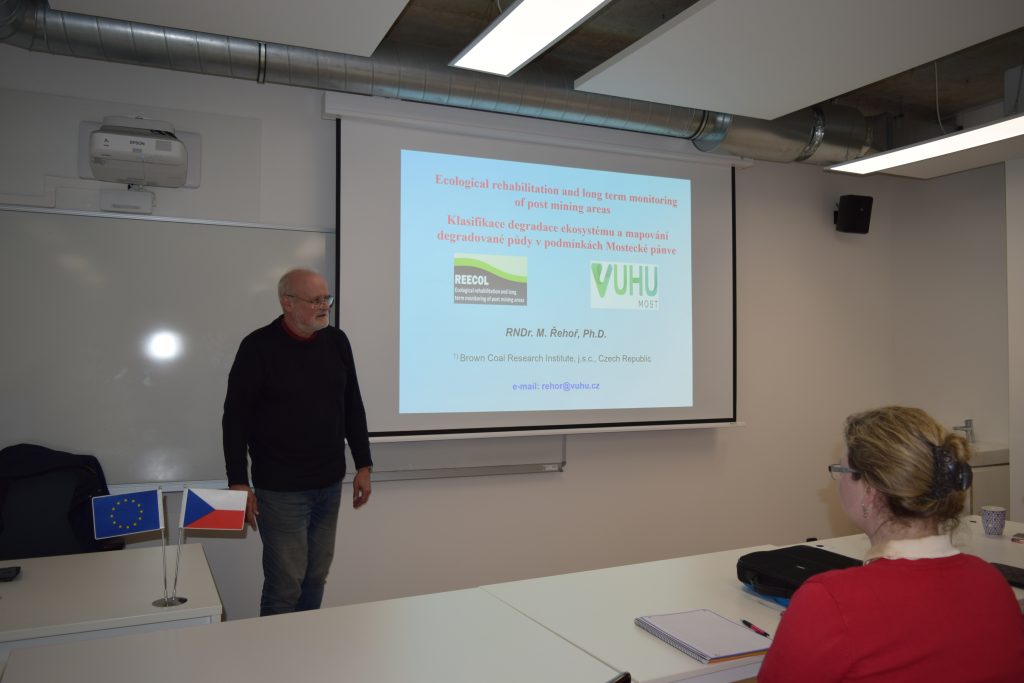
REECOL project presented on KOMEKO 2024
The project ideas were shared during a conference organized by KOMAG – KOMEKO 2024 .
A presentation was given during a session ‘Sustainable development in post-mining areas’ .
You can see the presentation here: https://youtu.be/V2QRQfVnStI?t=2199.
Additionally, the project roll-up was displayed.
Link to the recording of streaming: https://www.youtube.com/watch?v=V2QRQfVnStI
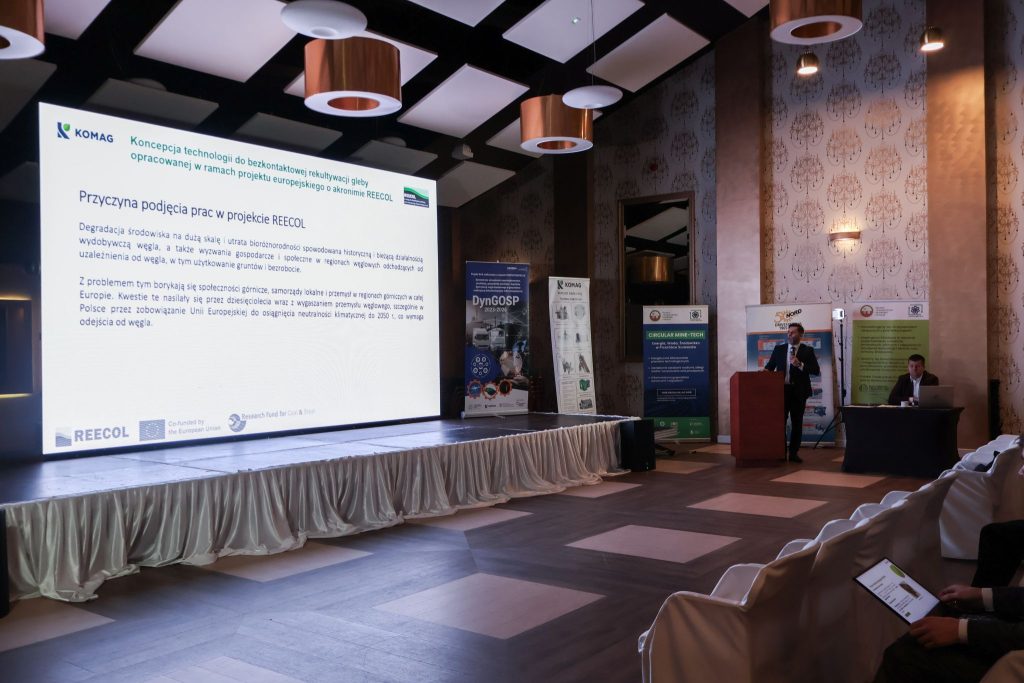
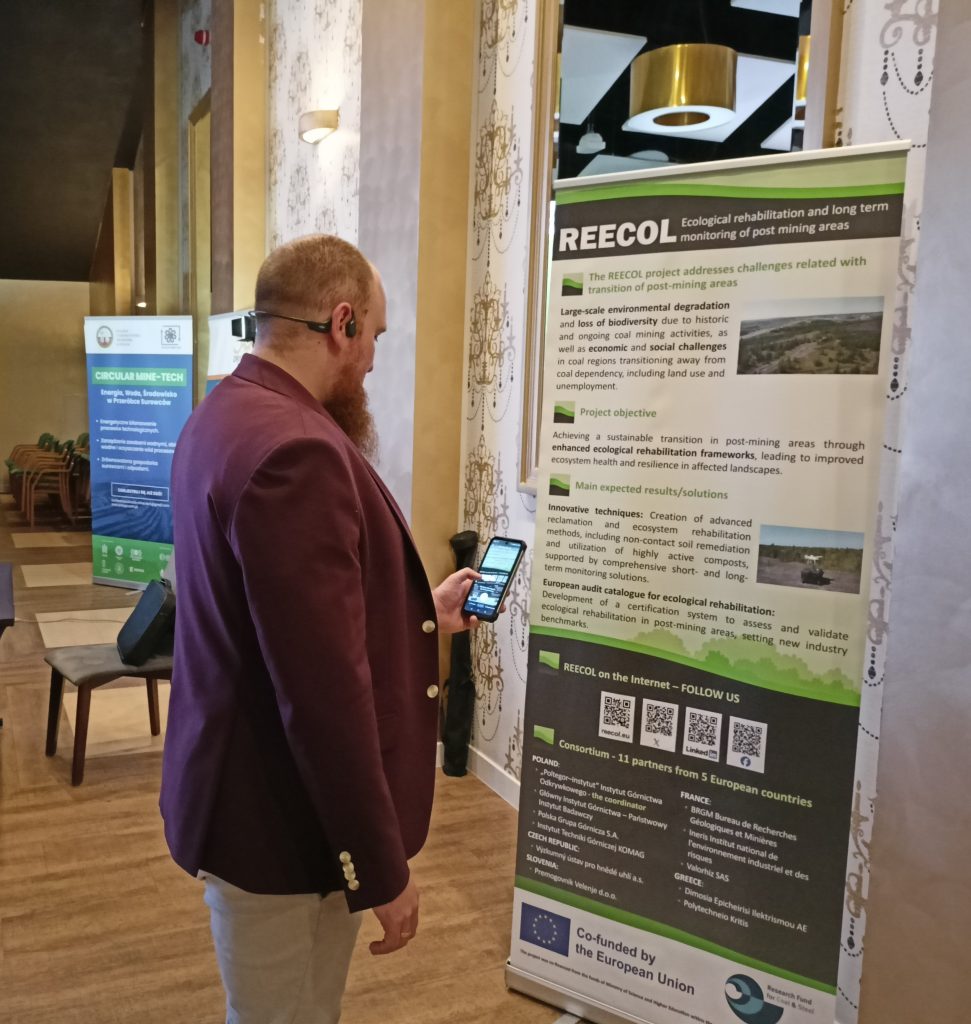
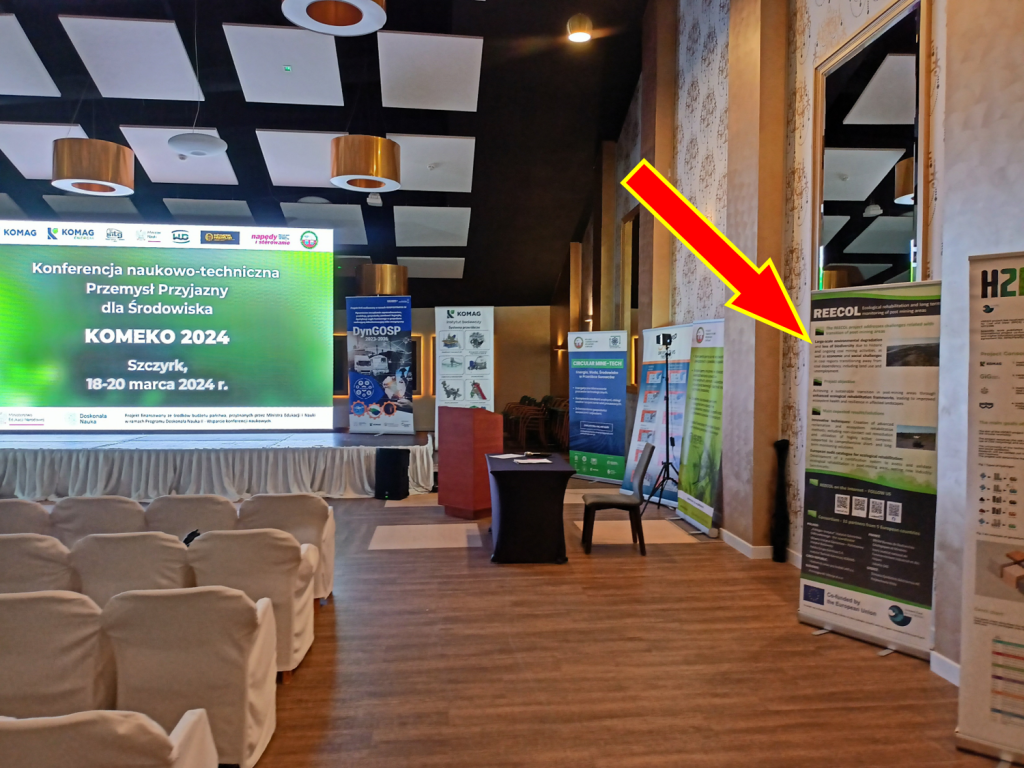
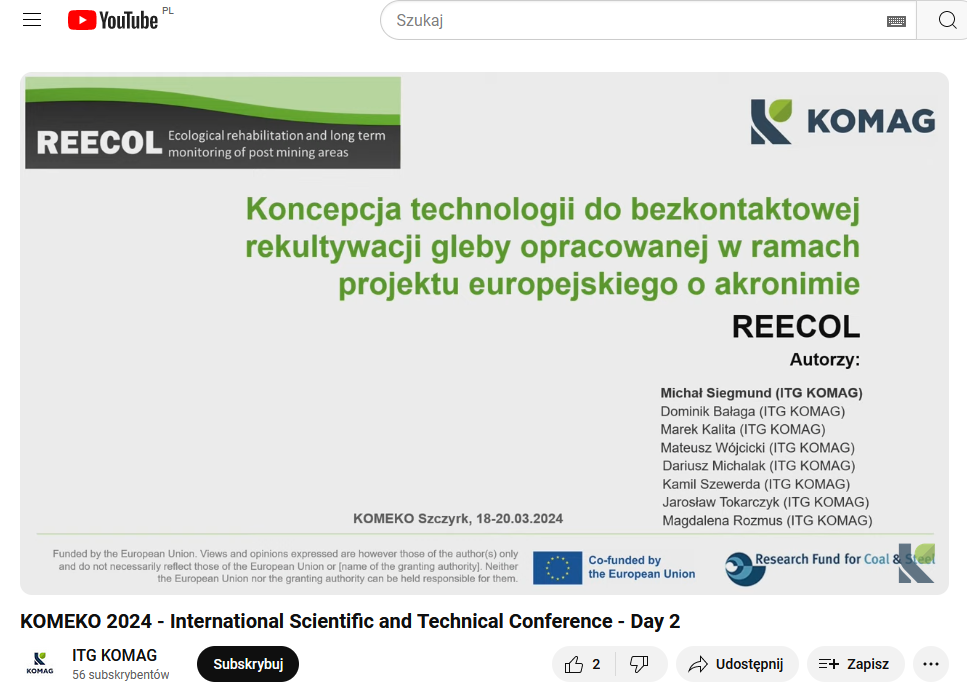
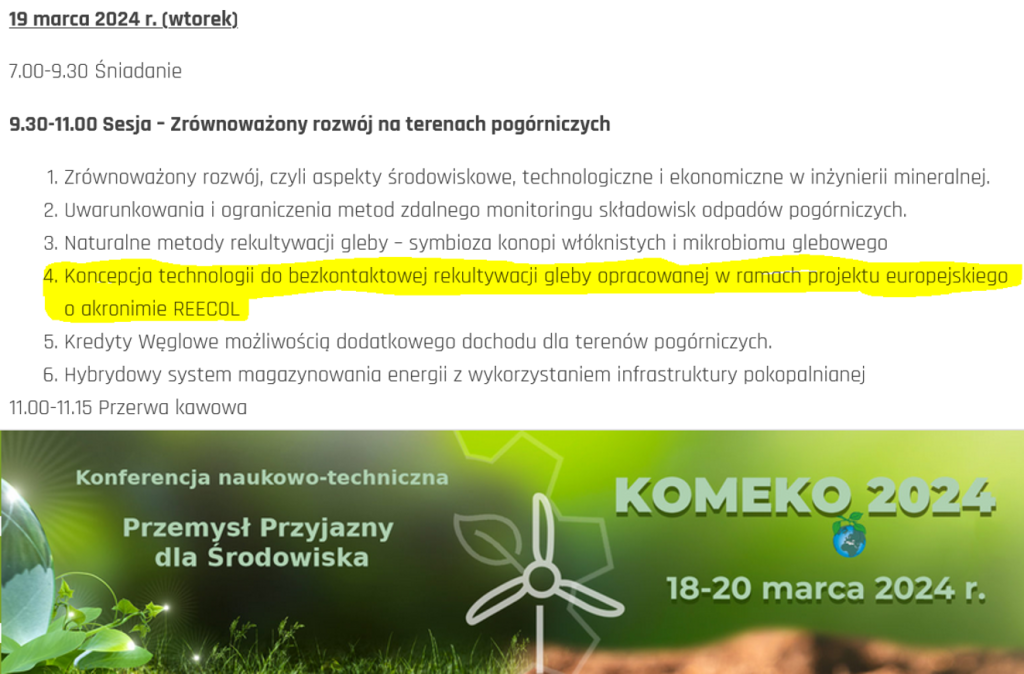
Working meeting of KOMAG’s REECOL team
KOMAG’s REECOL team met to discuss issues regarding: a) development of prototype system for non-contact soil remediation and b) monitoring the areas where the system will be used. For the device for spraying the compost, design assumptions were agreed. In particular decisions regarding the device structure, automation and control were made. Assumptions regarding procedure of monitoring the land rehabilitation process with use of drone and dedicated IT system were also agreed. Decissions regarding the upcoming activities and assigned tasks were also made.
